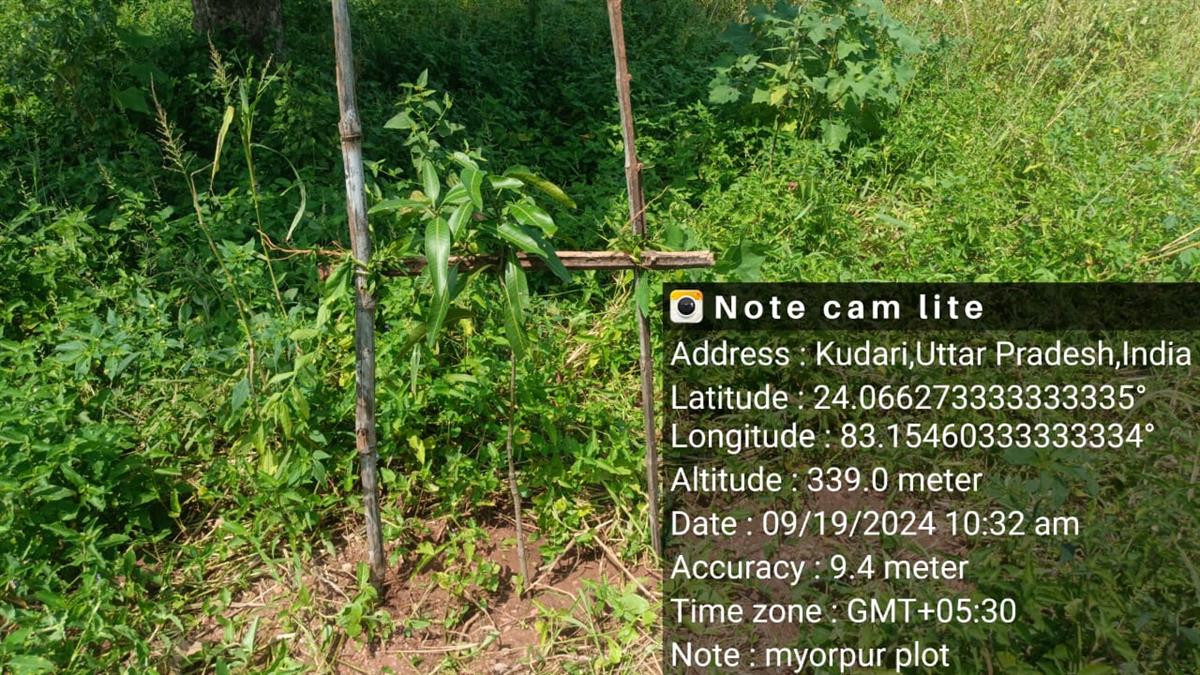
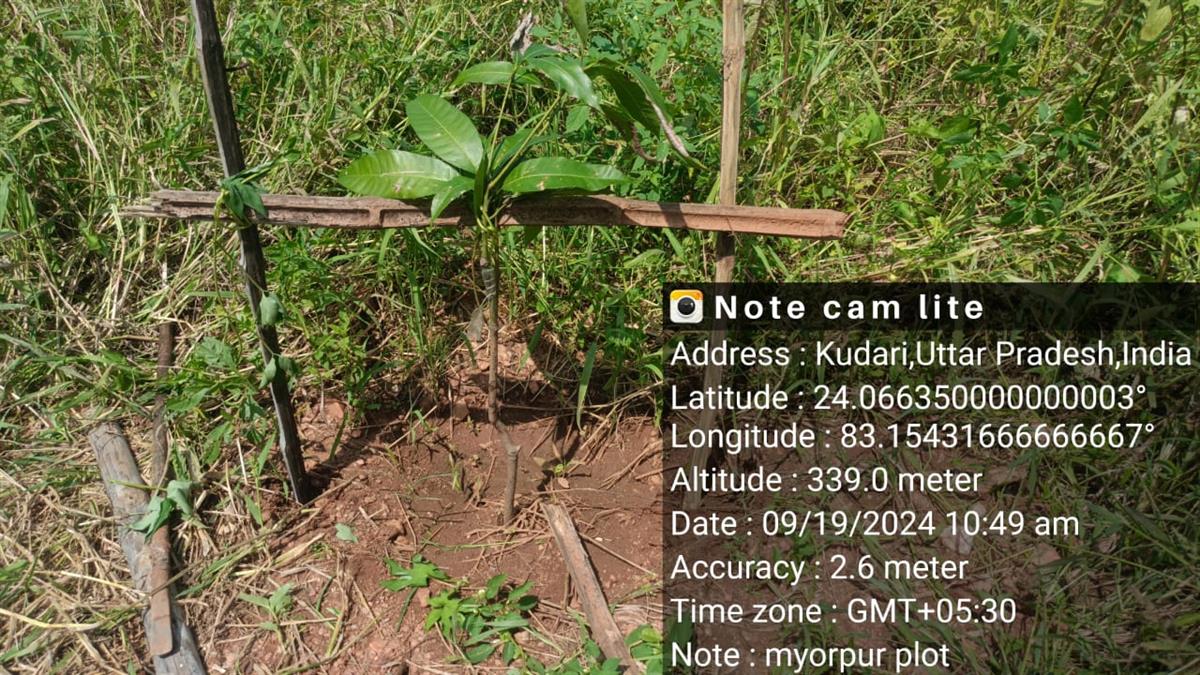
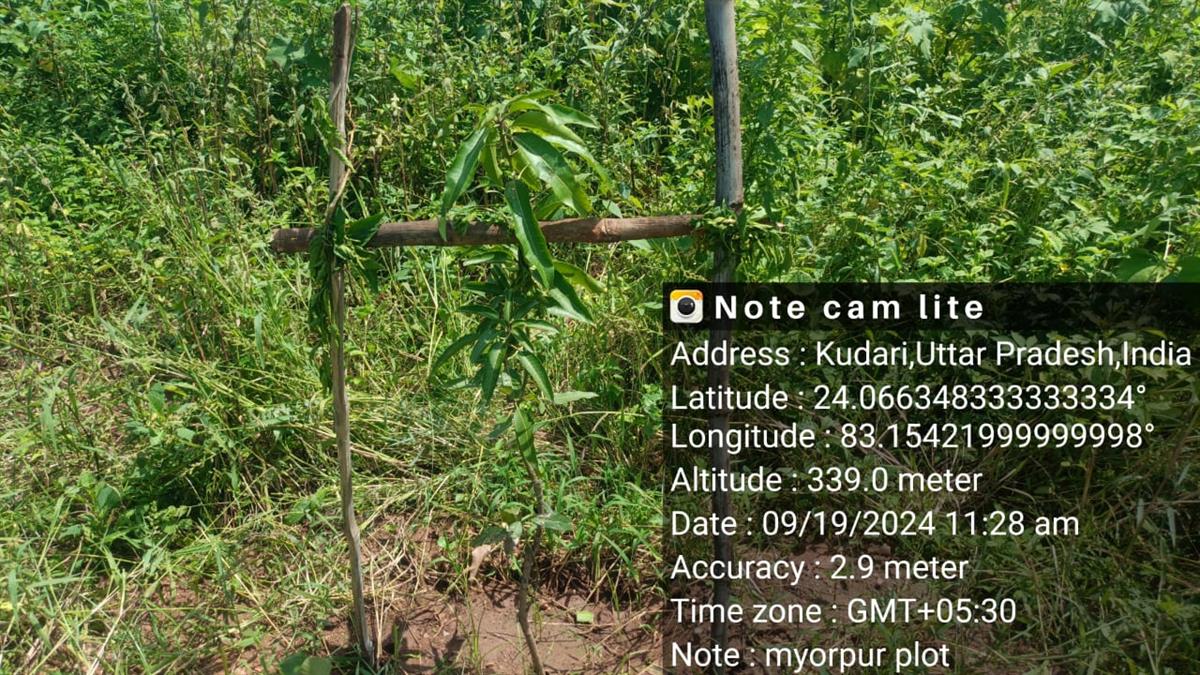
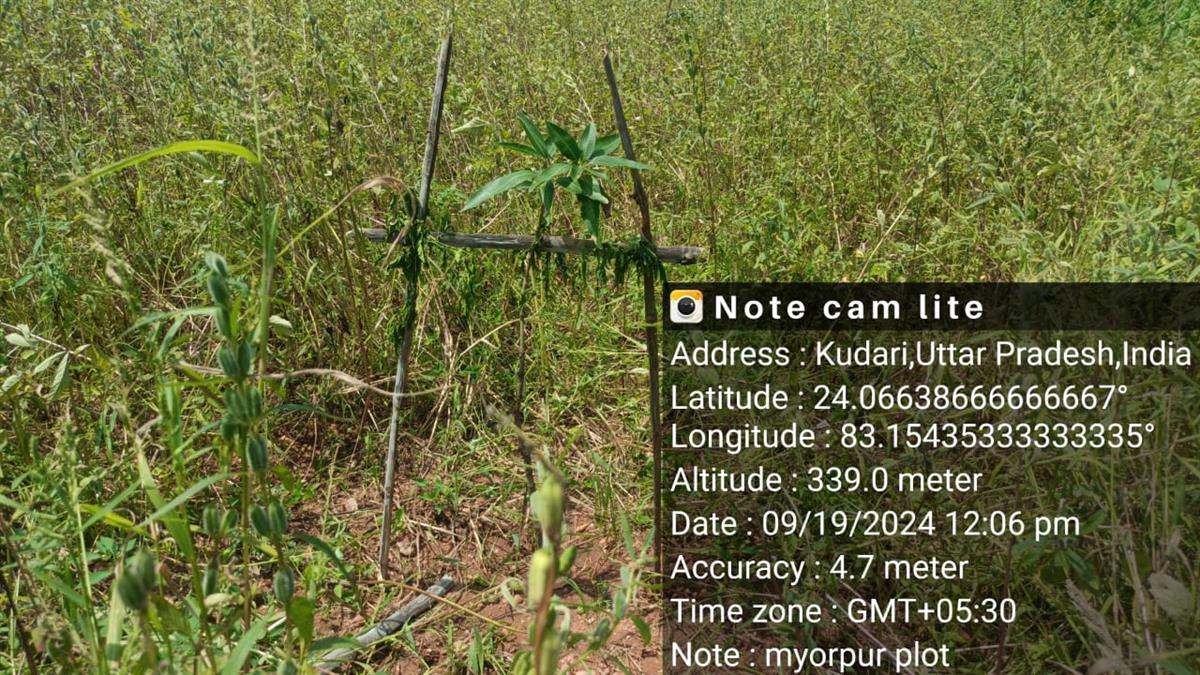
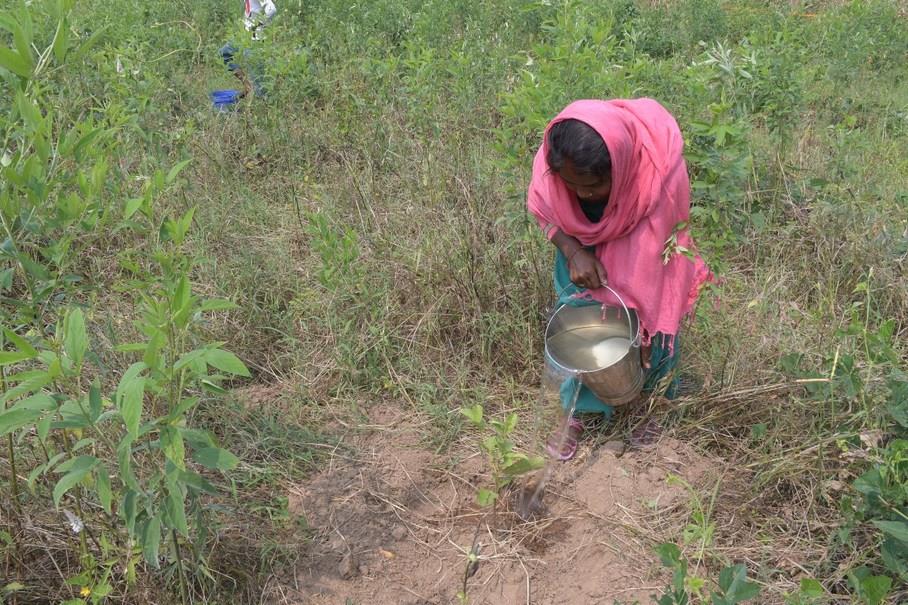
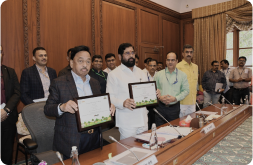
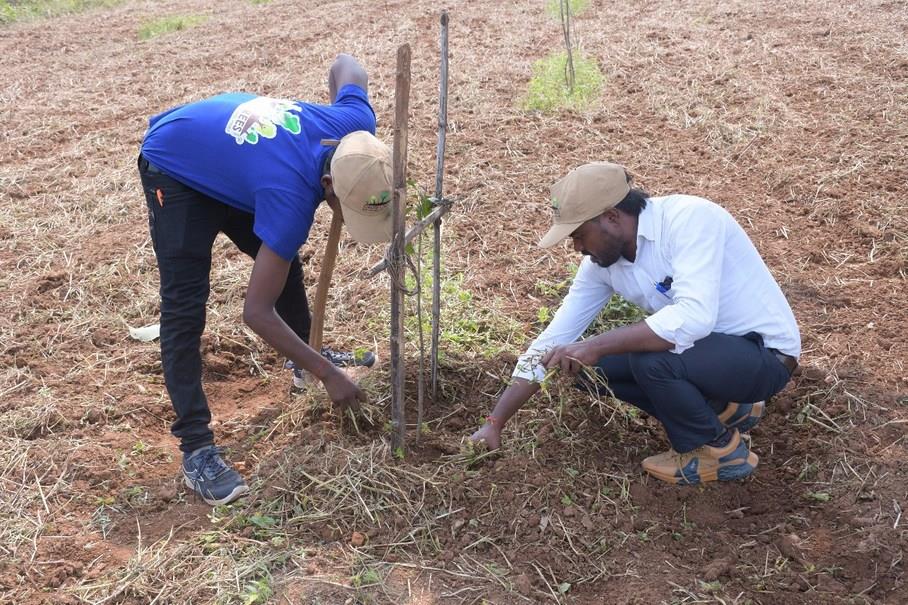
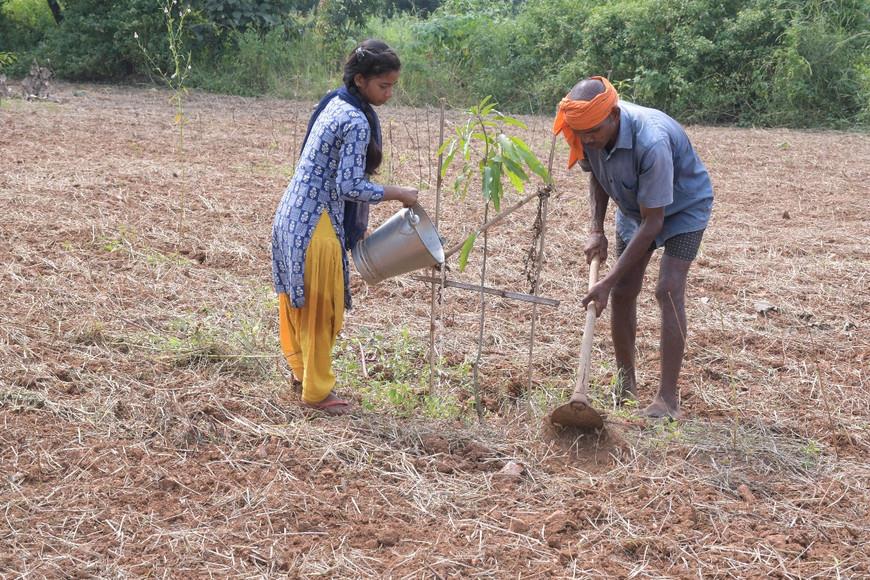
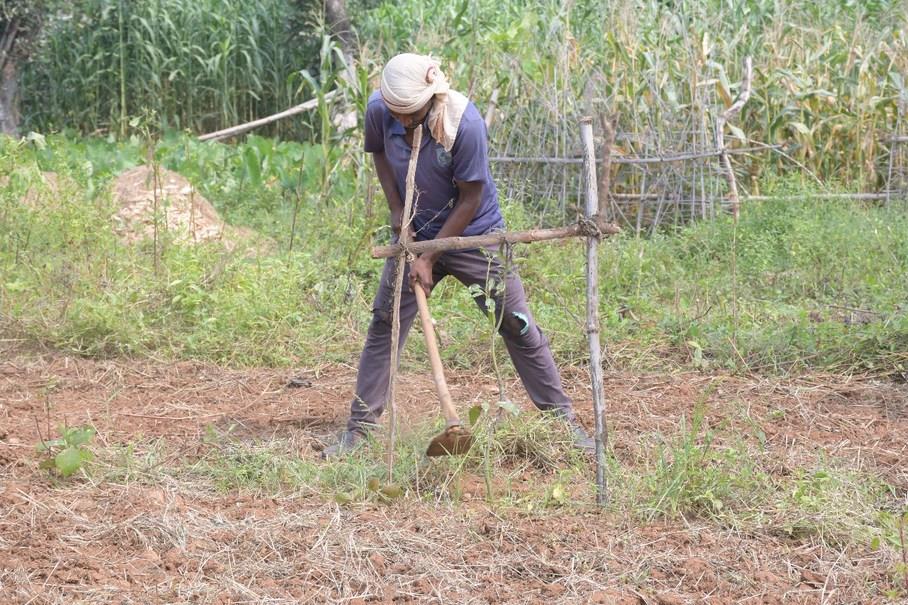
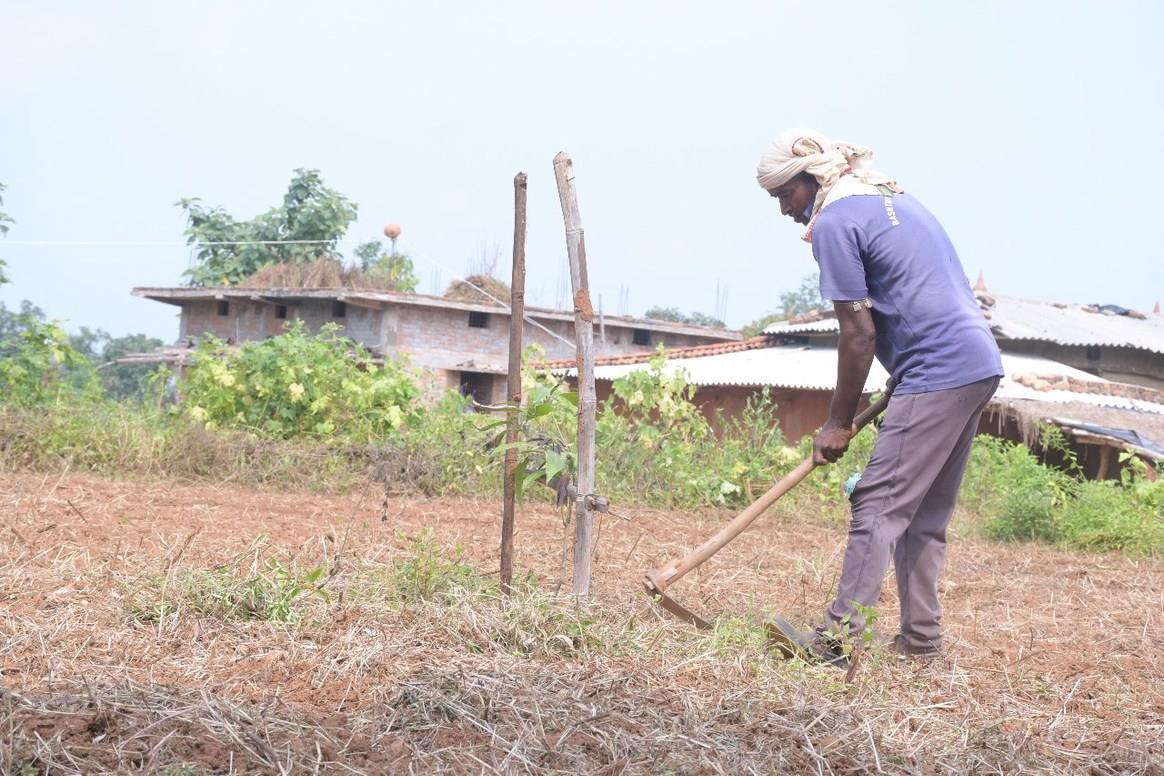
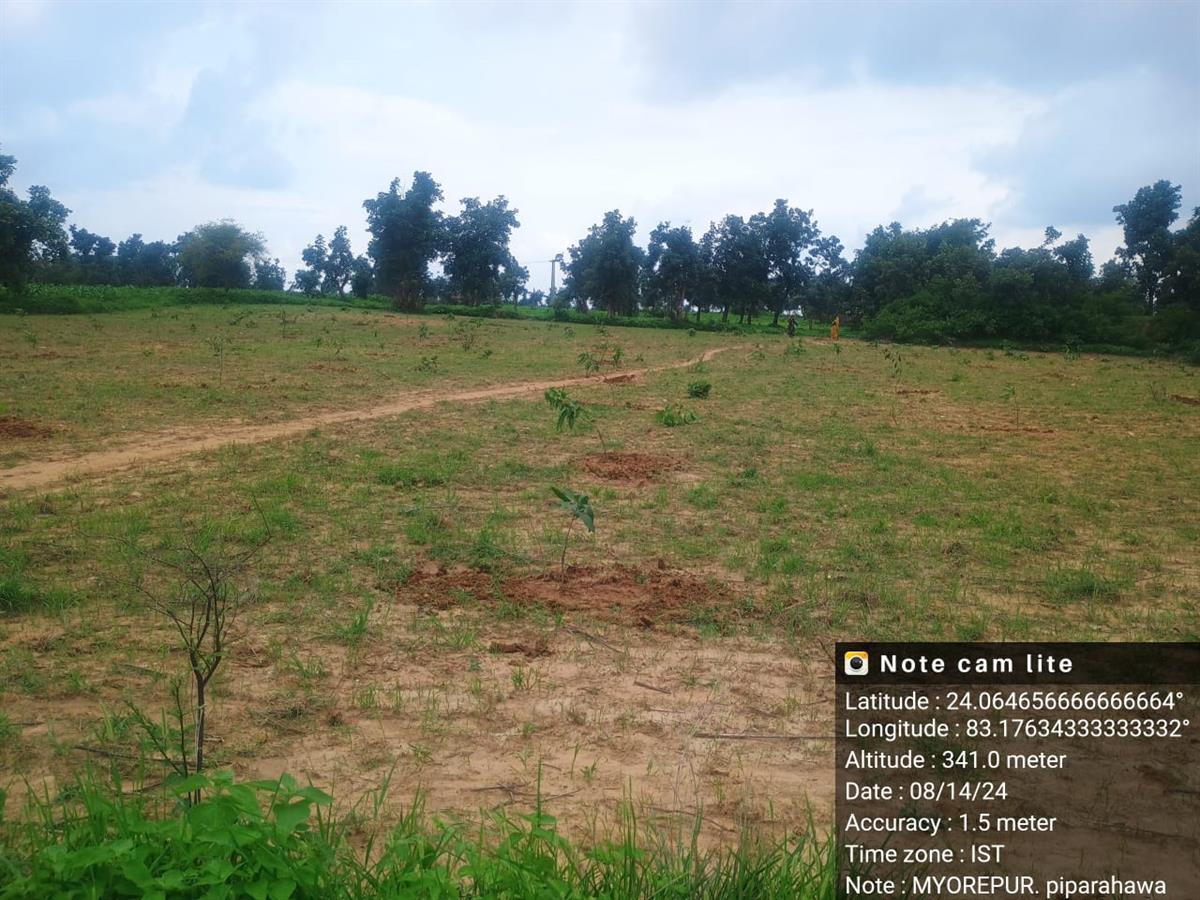
Project Target
0% Remaining
50,000
Trees Planted out of 50,000 Trees

Project Location:
In FY 2024-25, we have planted 50,000 trees in this project. It has been implemented across villages in Sonbhadra district, Uttar Pradesh, India.
Project Aim
SDG
About the Project:
The 'Trees for Farmers®: Carbon Neutrality' project is an agroforestry-based initiative implemented in the Sonbhadra district of Uttar Pradesh. It falls under the Afforestation, Reforestation, and Revegetation (ARR) category and adheres to the Verified Carbon Standard (VCS), a globally recognized certification system for carbon credits, managed by Verra, an international carbon registry. This project aims to offset carbon emissions while enhancing local livelihoods through sustainable land use. The project is expected to generate 12,500 metric tons of carbon credits in a period of 20 years.
Carbon credit potential:
|
Number of trees planted |
Carbon sequestration potential (20 years’ time period) |
Number of credits generated (20 years time period) |
|
50,000 trees |
12,500 tCO2 |
12,500 credits |
(These estimates will be monitored using geospatial analysis, including biomass and carbon stock calculations, conducted every six months throughout the specified time period.)
Why trees?
Once referred to as the "Switzerland of India" by Prime Minister Nehru, Sonbhadra district, nestled between the Vindhya and Kaimur hills, boasts the highest tree cover in Uttar Pradesh and is renowned for its stunning topography and natural beauty.[1] However, over the past two decades, Sonbhadra has lost 15 hectares of tree cover, as reported by Global Forest Watch. The district's farmers face numerous challenges, including low crop productivity, soil depletion, and decreasing rainfall issues compounded by climate change and deforestation. With agriculture being their primary source of livelihood, the adverse effects of these environmental changes are hitting hard. Reforestation initiatives in Sonbhadra offer a critical solution, aiming to restore the region's ecological balance, improve soil health, enhance water retention, and provide long-term benefits to the farming communities.
The "Trees for Farmers®; Carbon Neutrality" project in Sonbhadra, Uttar Pradesh, offers an innovative solution to combat climate change while driving socio-economic growth. This large-scale agroforestry initiative, registered under the Verra’s VM0047 standard for carbon credits,[7] aims to sequester carbon and generate additional income streams for local communities through the plantation of 50,000 trees such as Mango, Neem, and Jackfruit across rural land.
The project seamlessly integrates technology with conservation efforts throughout its implementation and monitoring stages. Geospatial analysis is employed for the selection of suitable sites, defining eligible areas, and assessing weather conditions, terrain types, and drought risks before selection. After plantation, the project is monitored using various GIS tools, including Normalized Difference Vegetation Index (NDVI), Above-Ground Biomass (AGB) assessments, and carbon stock calculations, all conducted quarterly to ensure precise and ongoing evaluation and reporting of the project's impact.
By sequestering significant amounts of carbon dioxide (CO₂), this project will generate carbon credits, which can be traded in global carbon markets or used to offset emissions.[10] These credits provide financial returns that can be reinvested in environmental and social initiatives, making it a self-sustaining model.
The project’s key objectives focus on:
This project not only aligns with global efforts toward carbon neutrality but also provides lasting benefits to local communities, making it a powerful tool in the fight against climate change while fostering sustainable development.[5]
Tree Species:
Our tree plantation initiatives in Sonbhadra are designed to empower local farmers by providing sustainable resources that promote both economic independence and environmental stewardship. The planting of Neem (Azadirachta indica) reduces the need for chemical pesticides, fostering healthier organic farming practices and improving crop yields. Additionally, fruit-bearing species such as Mango (Mangifera indica), Guava (Psidium guajava), Mahua (Madhuca longifolia), Amla (Phyllanthus emblica), Sharifa (Annona squamosa), Jamun (Syzygium cumini) and Jackfruit (Artocarpus heterophyllus) enhance food security while offering supplementary income opportunities, thereby supporting farmer self-sufficiency. Furthermore, the inclusion of species like Shisham (Dalbergia sissoo) and Teak (Tectona grandis) will provide a sustainable source of firewood from their twigs and branches, addressing local fuel needs without compromising forest cover. This holistic approach not only strengthens rural livelihoods but also contributes to long-term environmental and socio-economic resilience.
Social Benefits:
Economic Benefits:
Environmental Benefits:
Adoption summary
|
Name of the company |
Number of trees planted |
Fiscal year |
|
DCB bank |
50,000 |
2024-2025 |
Reference:
Social Impact of Growing Trees
Community Engagement
Tree planting initiatives often involve local communities, which can lead to greater community cohesion.
Ecological Education
Provides opportunities for community members, especially children, about the importance of environmental sustainability.
Urban Beautification
Trees contribute to the aesthetic enhancement of urban areas, making cities more pleasant and liveable.
Climate Resilience
By improving green cover, tree planting helps make communities more resilient against climate impacts like heatwaves.
Employment Creation
Planting trees creates employment for local community members like planting and maintenance, administrative roles, and more long-term jobs in management.
Wildlife Habitat
Trees provide critical habitats for various species of wildlife. Enhancing tree cover helps preserve biodiversity, which can be an ecological boon for local communities
Copyrights @ 2025 All rights reserved by Pangea EcoNetAssets Pvt Ltd.